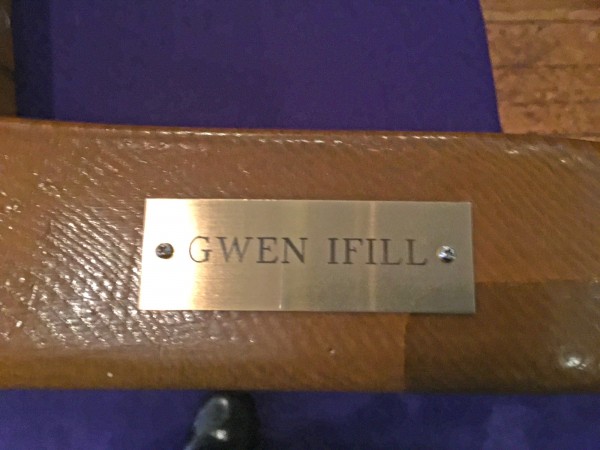Addiction is the great equalizer. It strikes without discrimination rich and poor, Black and White, everyday people and conservative talk radio hosts. Addictions can ruin marriages, careers and lives.
To an outsider, the solution to addiction may seem simple — if a substance is negatively affecting your life, just stop using it. But it's hardly ever that simple, said Olivia Jeffries, director of Project Network, a North Portland-based inpatient addiction treatment program primarily for African American women.
"We provide alcohol, drug and mental health treatment for women and children," Jeffries said. "Our target population has been African American, but we serve any woman."
Project Network is a full inpatient treatment program, meaning that its patients live, eat and sleep among each other and the program's counselors and staff.
Project Network's North Gantenbein Avenue residential center can house up to 28 women with up to three children each. Usually, Jeffries said, the center houses 28 women along with about 17 to 20 kids.
A course of treatment takes about six months, Jeffries said, but each individual's situation may lengthen or shorten that stay. And it's no picnic — each patient attends classes six hours a day from Monday through Friday. Individual case managers help the patients maintain a semblance of a normality — going shopping, spending time with their kids, getting some R&R.
If such a dramatic change in surroundings and habits seems radical, that's because it is, said Jeffries. The women who reach Project Network have usually tried — and failed — to kick their habit already. Many have already felt their addictions deeply affect their lives and have come to the program from prison or through a referral about child neglect. A radical shift — away from old surroundings, temptations and, most importantly, people — is what's needed.
"What many of these women need is to completely disconnected from the people who influenced them while they were using (drugs or alcohol)," Jeffries said. "The only people they're not separated from are their children. Their children can come stay with them after seven days."
Sadly, Jeffries said, many of the program's patients come from what she called "multigenerational dysfunction" — daughters who use drugs and form bad relationships because they saw their mothers doing the same, who in turn may have seen their mothers doing the same.
"Often, these women have seen domestic violence, sexual abuse, drug use throughout the history of their families," she said.
For African American women — who make up the bulk of Project Network's clients — an attempt is made to make them feel comfortable and as if they're among their own, said Jeffries. Everything from the predominantly African American staff to the art on the walls helps to welcome and reassure the clients.
"Culture is like air," she explained. "It's just something that happens naturally."
The program also helps its patients prepare for the transition back to clean and sober everyday life. Patients take classes in life skills and job interview techniques and, with the help of their case managers, start to assemble a wardrobe of working clothes. Most importantly, the program helps its patients line up housing and clean up any unpaid bills that might prevent them from establishing themselves in the outside world.
"Our issue is, whenever they get ready to transition out — whenever that time is — that they have stable housing, that they have all of their utilities," Jeffries said. "Lots of these women come to us with back bills. All those get caught up, and they're able to get utilities in their name and a phone."
Project Network follows its patients for 12 months, regardless of when they transition out of the residential facility. Thus, having an established address — and a phone — is essential for patients to maintain contact with the program. But more importantly, Jeffries said, is the presence of an ongoing support community. Life on the outside is fraught with temptation, and Project Network's large group of supportive women — many of them recovering addicts who themselves went through the program — is crucial to keeping patients from relapsing into drug and alcohol use. Many graduates of the program feel a desire to help other women who are struggling with the same demons.
"We have a really strong alumni group," Jeffries said. "We maintain close contact with our women through our alumni in that crucial first year after treatment.
"We get our women used to the (alumni) community early on in their treatment, through group sessions and activities. … We do a lot of hand-holding early on; everyone is allowed to go to church together, for example, after their first seven days."
And most of the time, it works. Jeffries said that, in the first post-residential year, more than 80 percent of Project Network's clients manage to remain sober — a statistic that's near the high end for residential programs. She said that she and her staff are proud of the work that they do.
"We're helping these women to rebuild their lives, to be good parents for their kids so that this isn't handed down between the generations," she said. "We teach them that they can live in the community and not feel trapped."
Project Network is a division of Lifeworks NW, a Portland-based addiction and mental health treatment organization. To learn more, call 503-645-3581.
- Home
- News
- Opinion
- Entertainment
- Classified
- About Us
 MLK Breakfast
MLK Breakfast- Community
- Foundation
- Obituaries
- Donate
05-06-2024 10:26 am • PDX and SEA Weather






















































































































































































































































































































